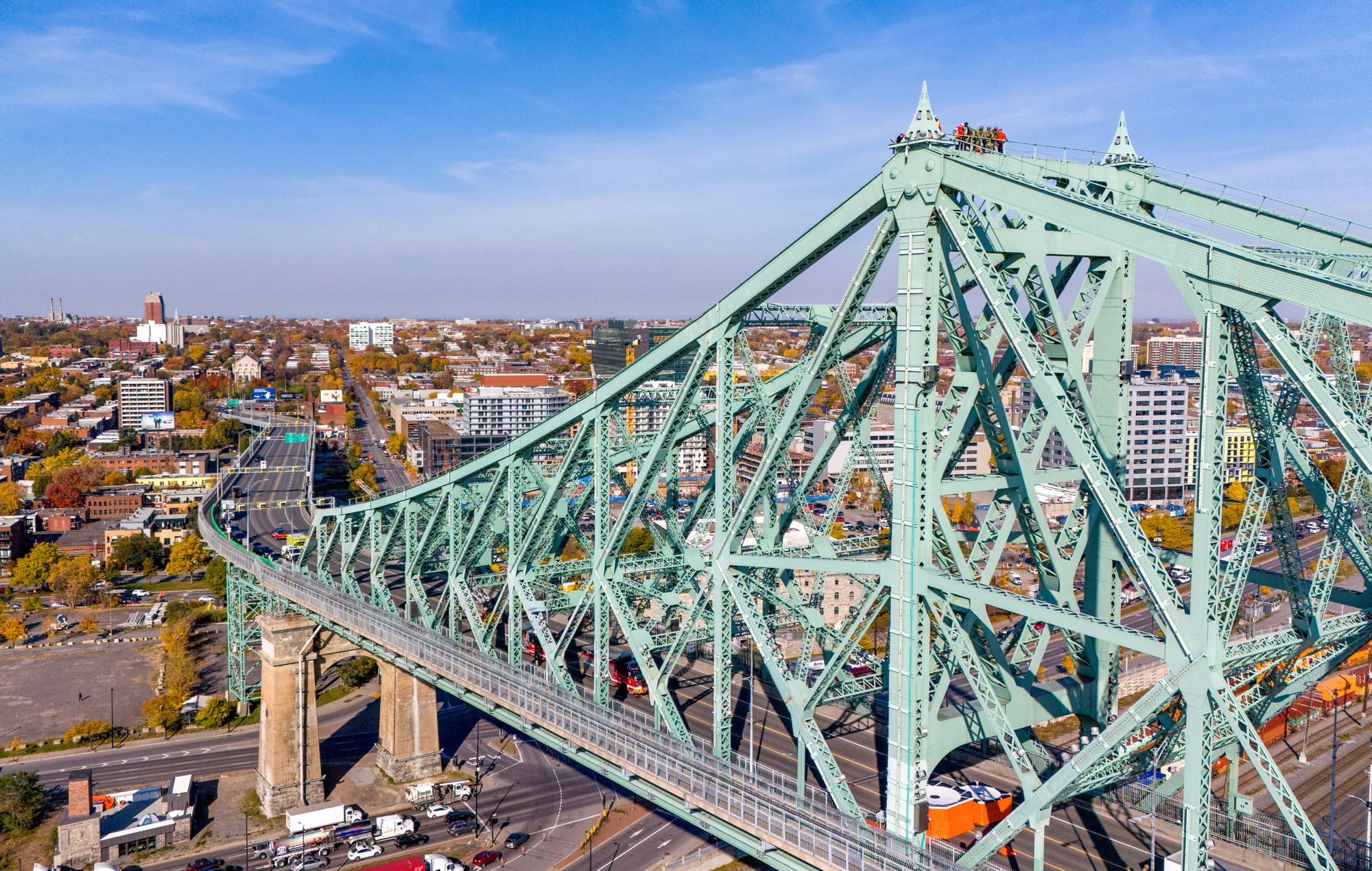Climate repression in Canada

In the early hours of 22 October two environmental activists scaled the Jacques-Cartier bridge in Montreal, a vast steel structure over 340 feet tall and 9,000 feet long. The third busiest bridge in Canada and primary point of access to the island, the crossing was shut down for several hours. The activists' demands were simple; that the Canadian federal government endorse the Fossil Fuel Non-Proliferation Treaty and close the polluting Enbridge Line 9B pipeline which runs through Quebec.
‘This action, to me, was a way to show people that we are able to take back the power [and] to send a message to the government that we can decide as a society what is good for us,’ explains Jacob Pirro, one of the climbers.
Pirro and his fellow climber, Oliver Huard, were arrested alongside their police liaison on the ground, Michèle Lavoie. Unlike the typical treatment of non-violent protest in Canada, the crown prosecutors denied the pretrial release of all three activists, deeming them a threat to national infrastructure. After two days in solitary confinement at the police station, they were sent to an overcrowded prison to await their 31 October hearing.
Michèle and Jacob secured early releases on 25 and 29 October respectively, under draconian bail conditions including a curfew and a temporary ban on media appearances or speaking to the press.
Huard however refused to accept the proposed bail conditions and began a hunger strike in protest. For five days, he was put in solitary confinement and on suicide watch, constantly monitored and denied sleep. At the 31 October hearing, the court unequivocally denounced the excessively punitive prosecution of the activists, and released Huard with no conditions. Charged with mischief for the blockade, with the two climbers also charged with resisting arrest, the activists will face trial in 2025.
Several civil society organizations have since argued that the activists’ treatment constitutes a breach of their human rights, and is part of a worrying trend of criminalization of climate activists in Canada and beyond. ‘People are very, very angry,’ Pirro reflects, ‘they’ve seen that the justice system we are taught to believe in is not just, at all’.
‘We now see that this is what happens,’ he continues, ‘when you criticize private entities that destroy our hope of a breathable future.’ On the future of Canadian climate movement, Pirro is clear; something has shifted.
— Paula Lacey (@pllcy)
📰 Read New Internationalist's coverage of the Fossil Fuel Non-Proliferation Treaty
👉 Follow the climate justice climbing collective Collectif Antigone
📝 Donate to Last Generation Canada
✊ Learn more about the campaign against Enbridge Line 9B
Like what you've read? Support us with a tip.
Are you a freelancer? Pitch us a story.
Looking for more? Listen to our podcast The World Unspun
Subscribe to New Internationalist magazine and get Currents absolutely free!

